Adzuki Beans: Health Benefits, Recipes, And Side Effects
These fibrous beans are your best bet if you want to switch to a healthy diet.
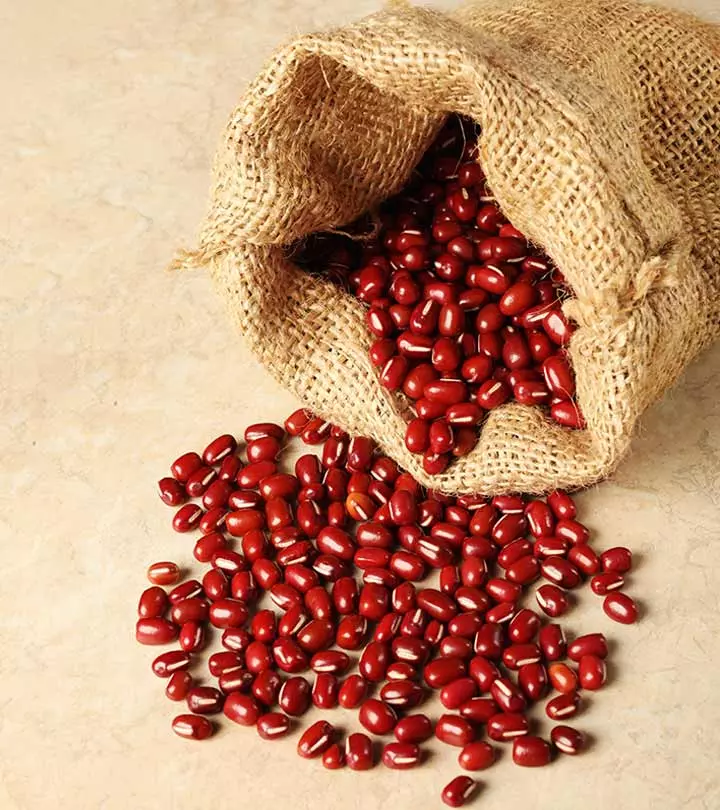
Image: Shutterstock
Adzuki beans, which belong to the Fabaceae family, are true champions in the nutrition world. They are rich in protein, fiber, and many other nutrients. Therefore, adzuki beans’ benefits are quite wide-ranging.
These Asian beans may help improve digestion, kidney and heart health, bone strength, and muscle mass, detoxify the liver, and lower cholesterol. Plus, they offer many more benefits!
In this article, we will tell you what adzuki beans are, how they are different from legumes, their nutritional profile, health benefits, potential risks, some easy and delicious recipes to try, and steps to follow while cooking them.
So take a look!
 Know Your Ingredient: Adzuki Bean
Know Your Ingredient: Adzuki BeanWhat Is It?
A reddish-brown small legume that is native to Asia.
What Are Its Benefits?
Helps gain muscle mass, aids weight loss, and improves digestive health, liver and kidney function, and heart health.
Who Can Use It?
All except those who are allergic to legumes.
How Often?
Half a cup as part of your daily diet.
Caution
Avoid it if you are allergic to it. Overconsumption can lead to flatulence and diarrhea.
In This Article
What Are Adzuki Beans?
Adzuki beans (Vigna angularis) are native to China and have been grown in Japan for at least 1000 years. Today, you can find the crops growing in Taiwan, India, New Zealand, Korea, Philippines, and warmer parts of China.
Adzuki or aduki beans are rich in dietary fiber, protein, iron, calcium, and folatei A form of vitamin B that stimulates tissue growth and promotes healthy cell function and red blood cell production. and have strengthening qualities. Also, because of the low glycemic index, adzuki beans are the preferred food for menstruating women and people with diabetes and obesity.
 Trivia
TriviaSo, how do you identify these beans? Let’s find out!
Key Takeaways
- Adzuki beans help improve digestion and kidney and heart health.
- They help in weight loss, strengthen bones, and increase muscle mass.
- Adzuki beans lower cholesterol levels and also detoxify the liver.
- They benefit women’s health, especially during pregnancy, as they are rich in iron, manganese, and phosphorus.
How Do They Look? How Are They Different From Other Legumes?
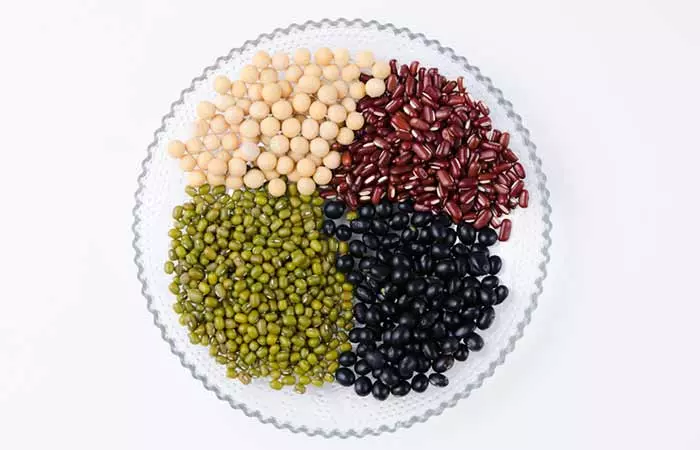
Adzuki beans are small, oval, bright-red, dry beans. You can find adzuki beans in a deeper red, maroon, black, and sometimes in white colors too.
Unlike other dry bean varieties, such as kidney beans, adzuki beans take very less time to cook, thanks to the small size and fair amount of protein and carbs in them.
They also don’t cause the characteristic flatulence and bloating like the rest of the legumes. Known to give you the ‘yang’ energy, adzuki beans are easily digestible and hence have a long list of benefits and recipes.
Here’s a crisp compilation of what adzuki beans do to you. Go ahead and explore the world of adzuki!
What Are The Benefits Of Adzuki Beans?
1. Help In Weight Loss And Digestion

An unhealthy, high-fat, unbalanced diet is one of the most common and major reasons for obesity. And if obesity is not controlled, it leads to fatal complications.
Adding adzuki beans to your meal improves the lipid metabolism, fat utilization, and energy production and treats obesity the healthy way.
The micronutrients and fiber in these beans can reduce starch metabolism, decreasing glucose levels in your blood and gastric emptying. Due to this, you end up feeling full and satiated and tend not to overeat (1).
2. Promote Kidney Health
Adzuki beans boast of high dietary fiber content – about 25 g (in raw beans) per cup. They also contain potent antioxidant phytochemicals like polyphenols and proanthocyanidins in fair amounts.
The combined action of fiber and antioxidants in adzuki beans scavenge reactive and undesirable free radicals and prevent the infiltration of inflammation-causing macrophages (immune system cells) (2).
Consuming the right amount of adzuki beans keeps your kidneys safe, efficient, and free of inflammation, injury, and complete breakdown.
3. Give You Strong Bones And Enhance Muscle Mass

With age, your bones and muscles tend to lose their strength and the power of repair or healing. This loss results in osteoporosis and reduced muscle mass, especially in post-menopausal women.
Cooked adzuki beans or their extracts contain bioactive ingredients like saponins and catechins. These ingredients restore the bone resorption and bone formation balance in people with osteoporosis and protect them from inflammation and total degeneration (3).
A cup of raw adzukis has about 39 g of protein. Nothing can beat the power of protein! Low carb-high protein diets help you lose the flab and build muscle mass. Because your body takes more time and energy to digest protein, and because adzuki beans have a low glycemic index, it’s a good idea to have them for lunch. You’d feel full, light, and energetic (4).
4. Lower Cholesterol And Detoxify The Liver
Drinking adzuki bean juice or soup reduces the serum triglyceride levels, prevents the accumulation of bad cholesterol (LDL), and protects your liver from inflammation or damage.
The proanthocyanidins and polyphenols in adzuki beans inhibit the production of pancreatic enzymes. These enzymes (especially lipases) are responsible for the absorption of lipids in the intestines (5).
Due to the reduced absorption, the levels of triglyceridesi A type of fat that circulates in the bloodstream. The body converts excess calories into it after a meal. and cholesterol are lower in your blood. When there are less lipids and triglyceridesi A type of fat that circulates in the bloodstream. The body converts excess calories into it after a meal. , there’s low peroxidationi A chain reaction that results in oxidative deterioration of lipids or organic fatty acids compounds present in the body. or toxic residues that attack your liver.
Hence, your liver is free from chronic liver diseases such as cirrhosisi A liver disease that inhibits liver function when healthy liver tissues are replaced by scar tissues in the body. , fibrosis, or cancers.
5. Promote Heart Health

The high levels of antioxidant polyphenols, proanthocyanidins, vitamin B, folatei A form of vitamin B that stimulates tissue growth and promotes healthy cell function and red blood cell production. , and potassium make adzuki beans the ideal candidate for a healthy heart.
These bioactive components reduce the free radicals that cause lipid and fatty acid peroxidationi A chain reaction that results in oxidative deterioration of lipids or organic fatty acids compounds present in the body. . They also exhibit anti-hypercholesterolemic effects, i.e., they relax the blood vessels and reduce hypertension.
The combined effect of all these components keeps your heart safe and cardiovascular diseases at bay (6).
6. Good For Women’s Health And Pregnancy
Adzuki beans are reservoirs of folatei A form of vitamin B that stimulates tissue growth and promotes healthy cell function and red blood cell production. (1.2 mg in 200 g) – one of the essential vitamins for women. Especially in pregnant women, folic acid can help prevent NTDs (neural tube defects) (7).
These beans are also rich in iron, manganese, phosphorus, and other micronutrients that help in regulating your menstrual cycle and premenstrual symptoms (PMS).
Legend has it that Japanese women would consume adzuki red bean paste or soup after menstruation to replenish the blood cells. It is possible that the rich iron content in adzuki beans may help prevent anemia (8).
7. May Have Anti-aging Properties
Adzuki beans have a history of traditional use in herbal medicine to combat aging. Boiled adzuki bean juice has been used for its potential to prevent age-related damage caused by stress and external factors (9).
Research has revealed that extracts from these beans, particularly its seed extract, possess potent antioxidant capabilities. It demonstrates its effectiveness in combating skin photoaging induced by UVB radiation. It not only reduces the production of reactive oxygen species (ROS) but also inhibits the secretion of matrix metalloproteinases (MMP)-1 and MMP-3, which contribute to skin aging.
Moreover, it promotes collagen production, making it a promising ingredient in the development of anti-aging cosmetic products (10).
There are many more benefits of the adzuki beans – all because of the nutrients and micronutrients. Adzuki’s nutritional profile has some fantastic numbers. You HAVE to check it out. Scroll down!
Nutritional Information Of Adzuki Beans
| Nutrition Facts Serving Size 197 g | ||
|---|---|---|
| Amount Per Serving | ||
| Calories 648 | Calories from Fat 9 | |
| % Daily Value* | ||
| Total Fat 1g | 2% | |
| Saturated Fat 0g | 2% | |
| Trans Fat | ||
| Cholesterol 0mg | 0% | |
| Sodium 10mg | 0% | |
| Total Carbohydrate 124g | 41% | |
| Dietary Fiber 25g | 100% | |
| Sugars | ||
| Protien 39g | ||
| Vitamin A | 1% | |
| Vitamin C | 0% | |
| Calcium | 13% | |
| Iron | 55% | |
| Calorie Information | ||
| Amounts Per Selected Serving | %DV | |
| Calories | 648(2713 kJ) | 32% |
| From Carbohydrate | 504(2110 kJ) | |
| From Fat | 8.7(36.4 kJ) | |
| From Protein | 136(569 kJ) | |
| From Alcohol | ~(0.0 kJ) | |
| Carbohydrates | ||
| Amounts Per Selected Serving | %DV | |
| Total Carbohydrate | 124 g | 41% |
| Dietary Fiber | 25.0 g | 100% |
| Starch | ~ | |
| Sugars | ~ | |
| Fats & Fatty Acids | ||
| Amounts Per Selected Serving | %DV | |
| Total Fat | 1.0 g | 2% |
| Saturated Fat | 0.4 g | 2% |
| Monounsaturated Fat | ~ | |
| Polyunsaturated Fat | ~ | |
| Total trans fatty acids | ~ | |
| Total trans-monoenoic fatty acids | ~ | |
| Total trans-polyenoic fatty acids | ~ | |
| Total Omega-3 fatty acids | ~ | |
| Total Omega-6 fatty acids | 223 mg | |
| Protein & Amino Acids | ||
| Amounts Per Selected Serving | %DV | |
| Protein | 39.1 g | 78% |
| Vitamins | ||
| Amounts Per Selected Serving | %DV | |
| Vitamin A | 33.5 IU | 1% |
| Vitamin C | 0.0 mg | 0% |
| Vitamin D | ~ | ~ |
| Vitamin E (Alpha Tocopherol) | ~ | ~ |
| Vitamin K | ~ | ~ |
| Thiamin | 0.9 mg | 60% |
| Riboflavin | 0.4 mg | 25% |
| Niacin | 5.2 mg | 26% |
| Vitamin B6 | 0.7 mg | 35% |
| Folate | 1226 mcg | 306% |
| Vitamin B12 | 0.0 mcg | 0% |
| Pantothenic Acid | 2.9 mg | 29 % |
| Choline | ~ | |
| Betaine | ~ | |
| Minerals | ||
| Amounts Per Selected Serving | %DV | |
| Calcium | 130 mg | 13% |
| Iron | 9.8 mg | 55% |
| Magnesium | 250 mg | 63% |
| Phosphorus | 751 mg | 75% |
| Potassium | 2470 mg | 71% |
| Sodium | 9.9 mg | 0% |
| Zinc | 9.9 mg | 66% |
| Copper | 2.2 mg | 108% |
| Manganese | 3.4 mg | 170% |
| Selenium | 6.1 mcg | 9% |
| Fluoride | ~ | |
That was the profile of the raw beans. Now, let’s look at the profile of cooked adzuki beans.
| Nutrient | Amount (per cup) |
|---|---|
| Carbohydrate | 57.0 g |
| Dietary Fiber | 16.8 g |
| Protein | 17.3 g |
| Total Fat | 0.2 g |
| Vitamin-A | 13.8 IU |
| Thiamin | 0.3 mg |
| Folate | 278 mcg |
| Magnesium | 120 mg |
| Phosphorus | 386 mg |
| Potassium | 1224 mg |
| Manganese | 1.3 mg |
Now that you got the numbers, I’m sure you’d want to whip up something delicious using these beans.
Here are a couple of quick and tasty recipes I’ve compiled for you. Let’s get to the kitchen!
How To Cook Adzuki Beans – Quick And Tasty Recipes
1. Creamy Adzuki Bean Hummus
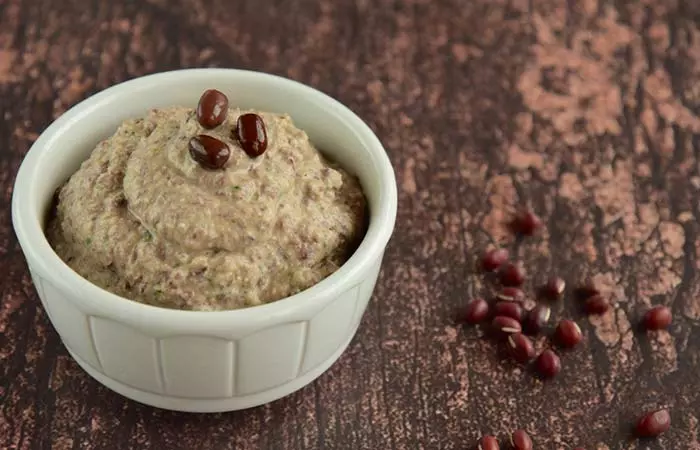
If you’re looking for super quick ways to add adzuki beans to your meal and don’t have the mood to make something elaborate, this is the recipe for you!
What You Need
- Cooked adzuki beans: 1 cup
- Garlic clove: 1
- Lemon juice (1 lemon): 2 tablespoons
- Tahini: 2 tablespoons
- Parsley: 1 tablespoons
- Cumin (ground): ½ teaspoon
- Ginger (ground): ½ teaspoon
- Paprika or chili powder: ¼ teaspoon
- Olive oil: 1 tablespoon
- Water
- Salt and pepper: to taste
- Sesame seeds: to garnish
Let’s Make It!
- Blend all the ingredients in a food processor until you get a smooth mixture.
- Add some water and blend again (the thickness depends on your desired consistency).
- Garnish with sesame seeds and finely chopped parsley.
- Serve this fresh and creamy adzuki beans hummus with raw veggies of your choice or nachos and tortilla chips on a movie night!
2. Adzuki Bean And Sweet Potato Patties
This recipe is for those days when you are all pumped up about cooking something nice, tasty, crispy, and indulgent. Also, when you are fighting the urge to have potatoes, you chose the healthier version – sweet potatoes!
What You Need
- Sweet potatoes (or yam): 1 large
- Adzuki beans (canned): 15 oz. or 1 cup of cooked beans
- Dill leaves: 10-15 washed
- Onion: 1 small, super finely chopped
- Multigrain flakes or flour: 2-4 tablespoons (optional)
- Mixed spices or garam masala: ½ teaspoon
- Chili powder or flakes: ½ teaspoon
- Olive oil: 1 tablespoon
- Breadcrumbs: ¼ cup
Note: You can add oats, quinoa, and other whole grains of your choice for the crunch in your patties.
Let’s Make It!
- Boil, peel, and mash a large sweet potato or yam in a large mixing bowl.
- Add the rest of the ingredients, except the breadcrumbs, to the bowl. Mix, mash, mix.
- You can also run these ingredients through the food processor for a coarse mixture.
- Add salt to taste.
- Make about 2-3 inch wide patties and coat them evenly with breadcrumbs.
- This mixture will be sticky, so use flour or oil on your hands to work with the batter.
- Bake for 25-30 minutes at 375°F until the patties turn golden and dry on the outside.
- You can add these patties to lightly toasted mini-buns and make filling burgers. Or eat them crumbled in a salad bowl.
- For the mini burger: Arrange Spinach or lettuce on the buns, top with a burger patty, cucumber and tomato discs, and fresh dill and shut it with the top half of the bun.
- Dig into these healthy mini burgers while sipping on a basic dark chocolate smoothie or a cucumber-mint mojito, and you are sorted!
Ruth, a food blogger, tried cooking adzuki beans with kabocha squash and found it to be a good combination. She writes, “Adzukis are so sweet that they are often used in Japanese desserts. That use is an acquired taste in my experience, so I prefer to stick to savory options (i).”
Oh man! Mouthwatering is an understatement! I’m sure you’d want to try these recipes out. But before you start cooking, here are a few pointers to keep in mind.
Points To Remember While Cooking Adzuki Beans
- You need to soak adzuki beans for at least 1-2 hours before cooking. So, plan your cooking accordingly.
- You have to boil the soaked and washed adzuki beans on high heat for about 30 minutes. Pressure cooking is a quicker option to get soft and sweet beans.
- You can store cooked adzuki beans in the refrigerator for prolonged usage.
- Make sure you don’t leave any water in the storage container.
For Sprouting
- After soaking the adzuki beans, drain the water and leave about 1-2 tablespoons of water behind.
- Transfer the beans, along with the water, to a shallow pan and leave it open to air for 3-4 days.
- Once sprouted, rinse the sprouts well in cold water, drain, get rid of extra moisture, and store in a container.
- If you want to refrigerate the sprouts, keep rinsing them every day in freshwater and change the container.
- This way, no molds will form, and you can store them for 7 days!
 Trivia
TriviaSo, is it alright if you have only adzuki beans in all your meals, seven days a week? Here’s the answer.
What Are The Side Effects Of Adzuki Beans?
There are no fatal side effects or risks associated with adzuki beans. Yay!
But, hold on!
One of the most common problems we all face with these legumes and lentils is gas or flatulencei A process in which intestinal gas from the digestive system is expelled through the anus. It helps reduce abdominal pain. . The same holds true for adzuki beans as well.
If you consume half-cooked or spoilt adzuki sprouts, you might have:
- Gas
- Mild diarrhea, or
- Nausea
Note: To minimize these side effects, try soaking adzuki beans overnight before cooking. This can significantly reduce gas-producing compounds. Additionally, thorough cooking helps break down complex sugars, making them easier to digest.
If you are new to adzuki beans, start with small portions and gradually increase your intake. This will allow your digestive system to adjust to the higher fiber content and allow you to enjoy all its health benefits.
If you still experience severe or persistent digestive discomfort, reduce your adzuki bean intake or consult a healthcare professional.
Ideally, half to one cup of adzuki beans per day will give you enough carbs, proteins, and calories while filling your tummy.
Infographic: 6 Reasons To Add Adzuki Beans To Your Diet
Adzuki beans are commonly used in Southeast Asian dishes for its nutty taste and crunchy texture. They are rich in antioxidants, fiber, and other essential nutrients, which make them a healthy addition to your diet. Check out this infographic to learn about how these delicious beans can improve your overall health.

Illustration: StyleCraze Design Team
Adzuki beans are nutritious Asian legumes featured in many savory vegetarian and vegan dishes. These gluten-free beans are loaded with protein, dietary fiber, vitamins, and minerals. The benefits of adzuki beans include weight management, stronger bones, and better blood circulation. They may also promote heart, liver, digestive, and kidney health. Adzuki beans may also aid in weight loss, enhance muscle mass, and lower cholesterol levels. However, excess intake of these beans may lead to digestive issues like gas, nausea, and mild diarrhea. Therefore, you should limit its use and consult a doctor if you experience any adverse reactions.
Frequently Asked Questions
What is the difference between adzuki beans and red beans?
The term ‘red beans’ can be used to describe both adzuki and kidney beans. Kidney beans are twice the size of adzuki beans and have a characteristic kidney shape. Both are nutritious options, but the benefits of kidney beans may vary from that of adzuki beans.
Do adzuki beans contain estrogen?
No. However, their extracts have been shown to exert estrogen-like effects (11).
Can adzuki beans cause constipation?
Yes. According to anecdotal evidence, adzuki beans may cause bloating and constipation if consumed in excess.
Can adzuki beans help with blood sugar control?
Yes, adzuki beans may be a potential functional food for diabetes and blood sugar control (13). However, more human studies are needed to validate this claim.
Illustration: All About Adzuki Beans – Benefits + Recipes+Side Effects

Image: Stable Diffusion/StyleCraze Design Team
Personal Experience: Source
StyleCraze's articles are interwoven with authentic personal narratives that provide depth and resonance to our content. Below are the sources of the personal accounts referenced in this article.
i. Adzuki Beans with Kabocha Squashhttps://seasonallyvegan.wordpress.com/2013/10/11/adzuki-beans-with-kabocha-squash/
References
Articles on StyleCraze are backed by verified information from peer-reviewed and academic research papers, reputed organizations, research institutions, and medical associations to ensure accuracy and relevance. Read our editorial policy to learn more.
- “Potential efficacy of preparations…” Dove Medical Press, US National Library of Medicine
- “Protective effect of dietary azuki bean…” Nutrition, US National Library of Medicine
- “Regulation of the differentiation of osteoblasts…” Food and Nutrition, Taylor and Francis Online
- “In with the good, out with the bad” Harvard Heart Letter, Harvard Medical School
- “Azuki Bean Juice Lowers Serum…”Journal of Clinical Biochemistry and Nutrition, US National Library of Medicine
- “Polyphenol-containing azuki bean…” Nutrition, Metabolism and Cardiovascular Disease, ScienceDirect
- “Folic Acid: the Vitamin That Helps…” Department of Health, New York State
- “Iron Deficiency Anemia” PubMed
- “Azuki Bean Juice Lowers Serum…” Journal of Clinical Biochemistry and Nutrition, US National Library of Medicine
- “Anti-Photoaging Effect of …” Molecules, US National Library of Medicine
- “Estrogenicity of adzuki bean Phaseolus angularis wight. and its effect on proesterone receptor level in human breast cancer MCF-7 cells” Zhongguo Zhong Yao Za Zhi
- The Genetics of Domestication of the Azuki Bean (Vigna angularis)” Genetics, US National Library of Medicine
- Adzuki Bean MY59 Extract Reduces Insulin” Nutrients, US National Library of Medicine
Discover the amazing health benefits of adzuki beans. Learn how these nutrient-packed beans can help improve your overall health and well-being by checking out the video below.
Read full bio of Anna Jones
Read full bio of Swathi Handoo
Read full bio of Ravi Teja Tadimalla
Read full bio of Aparna Mallampalli







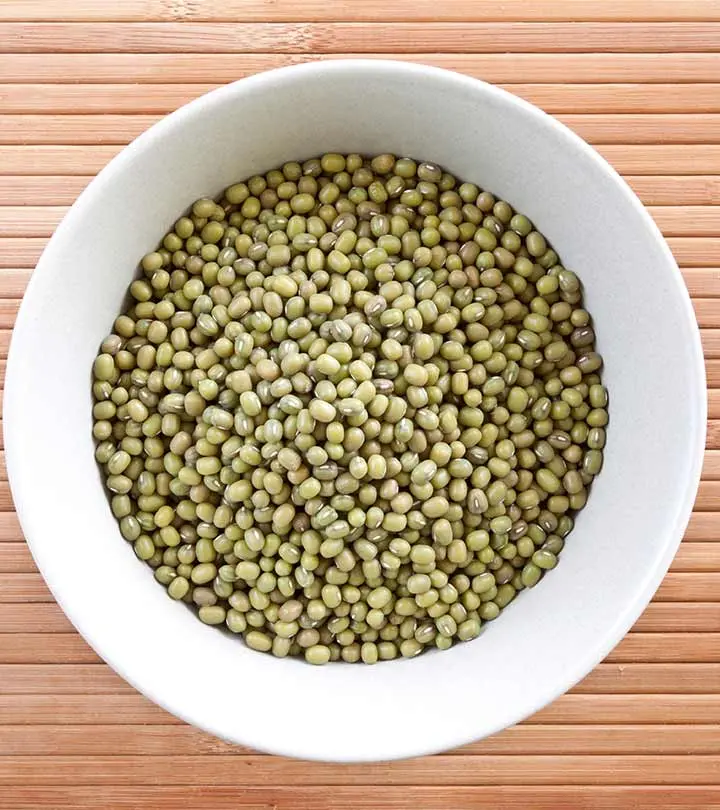
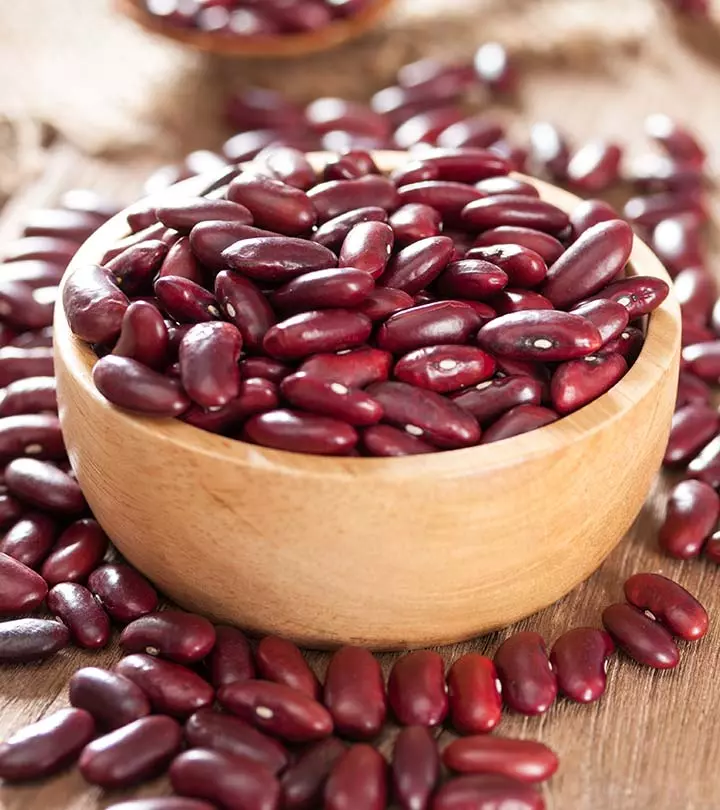
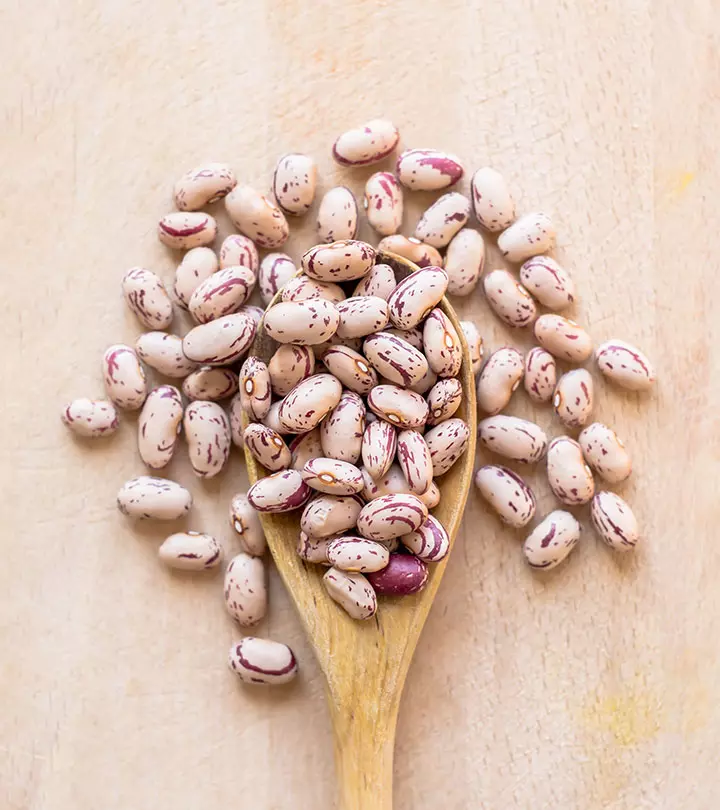
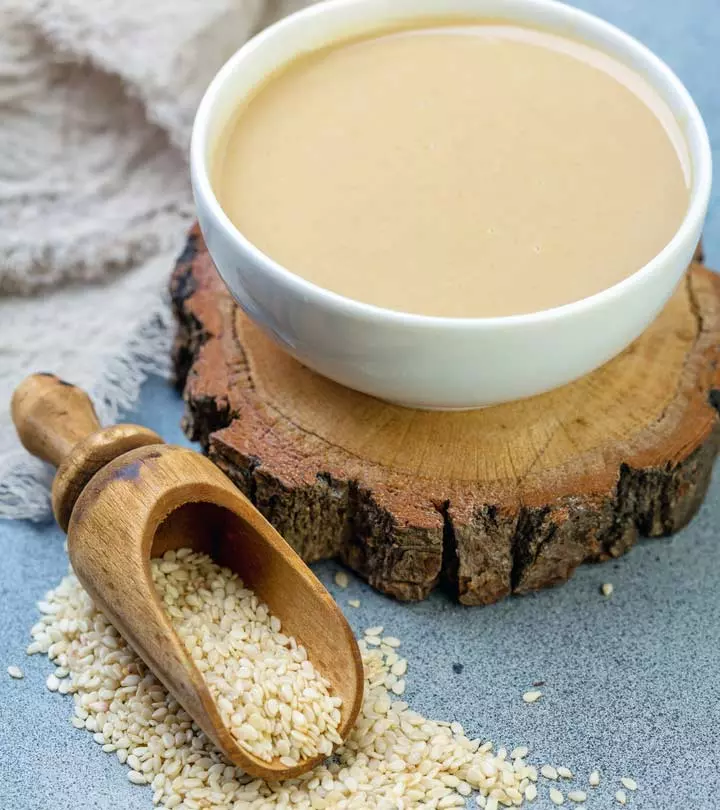
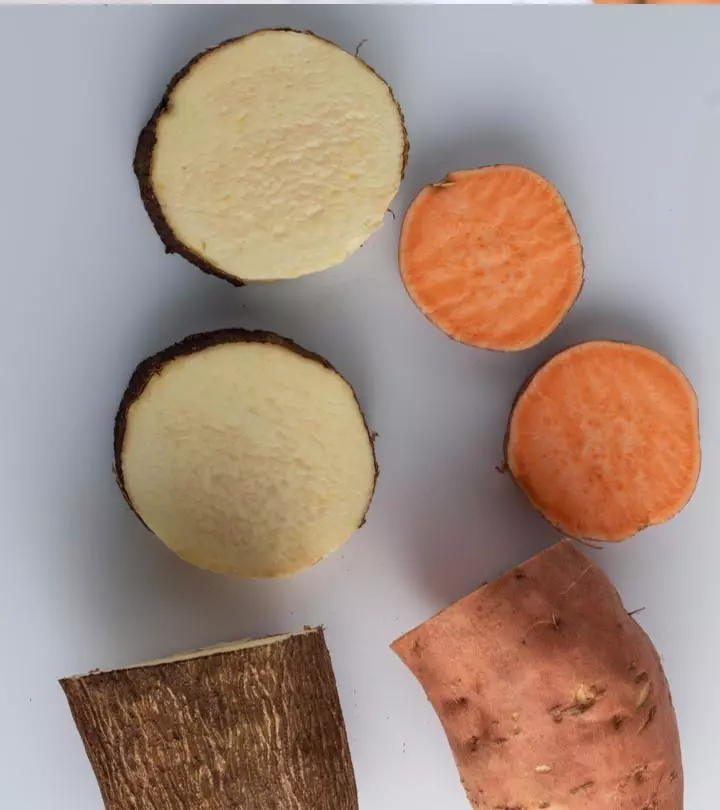
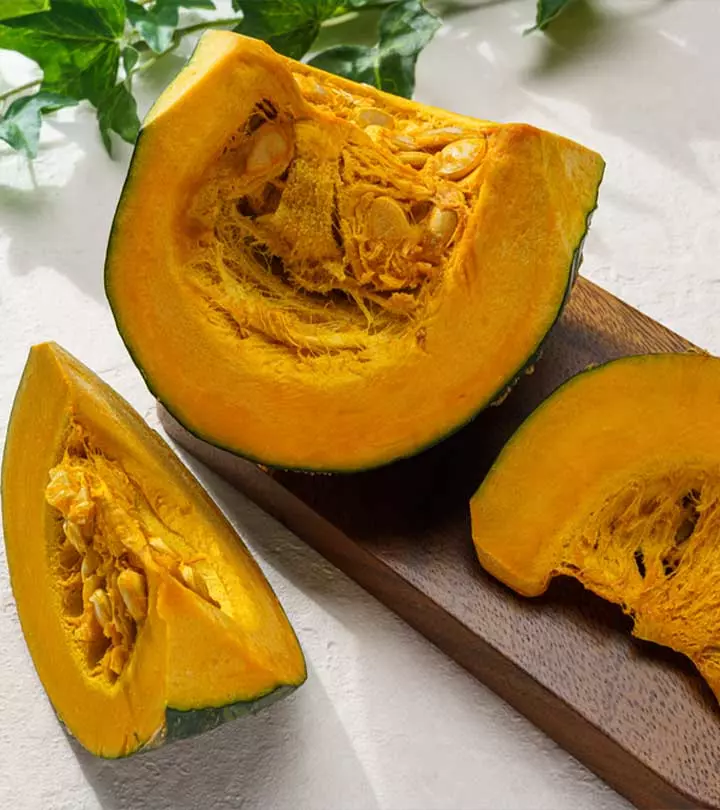

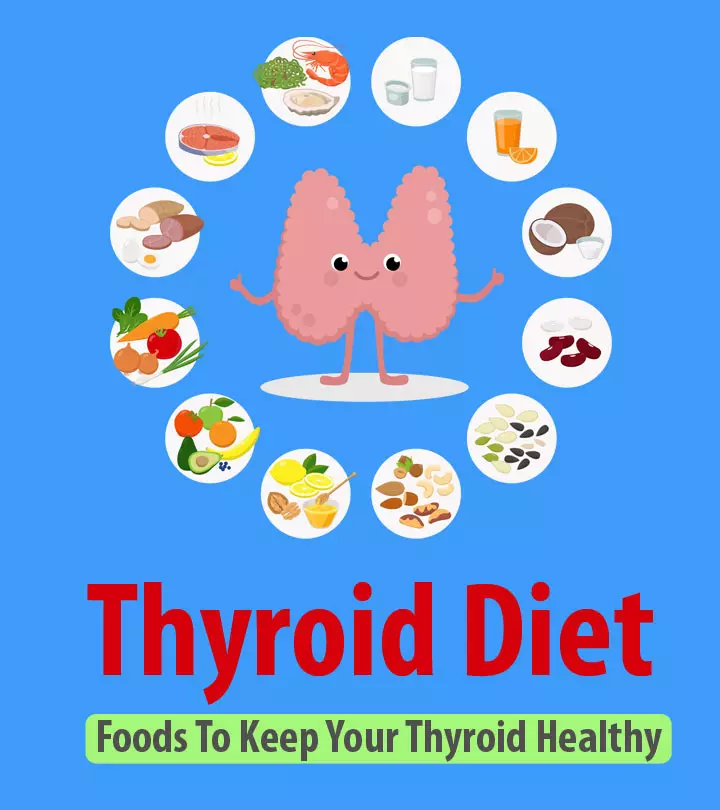
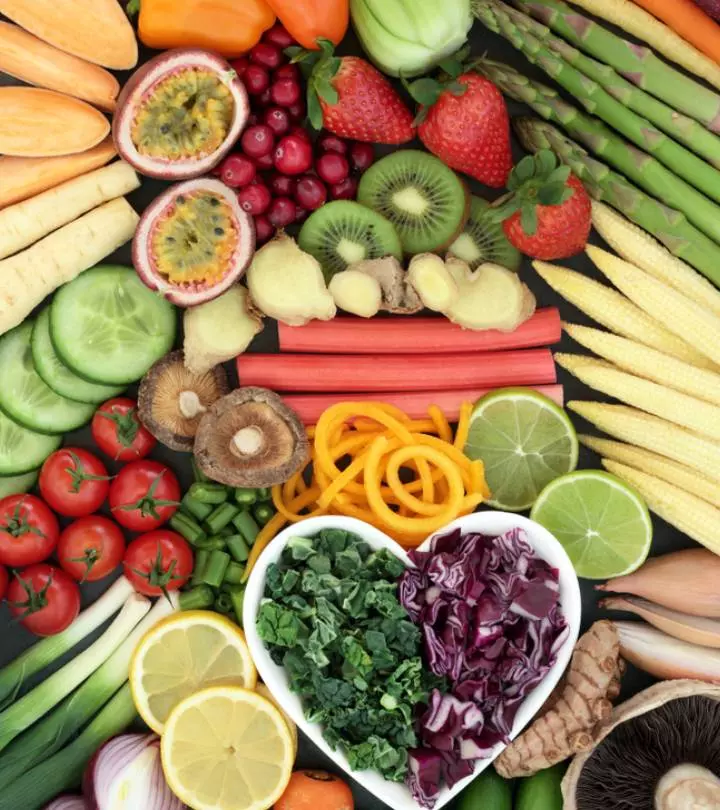


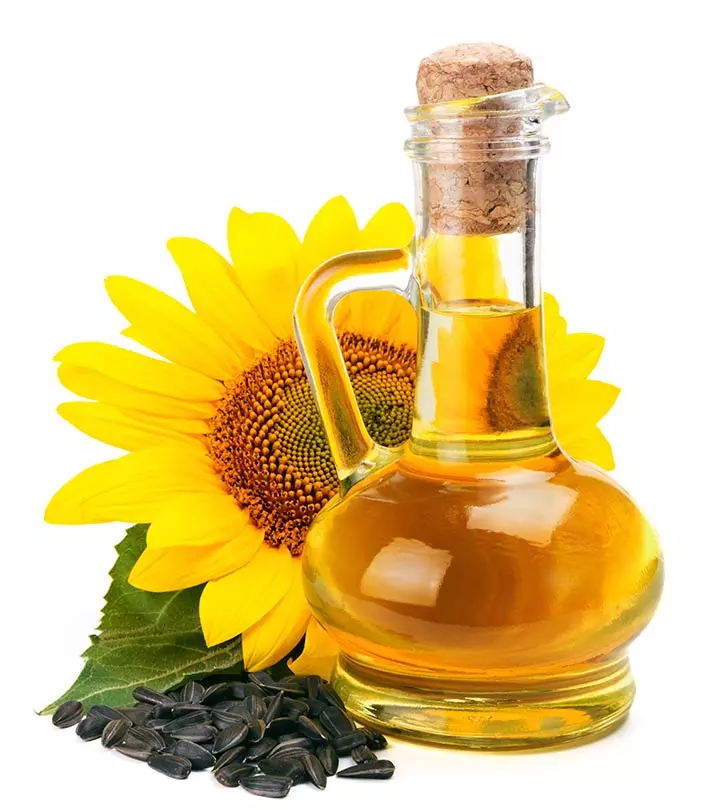
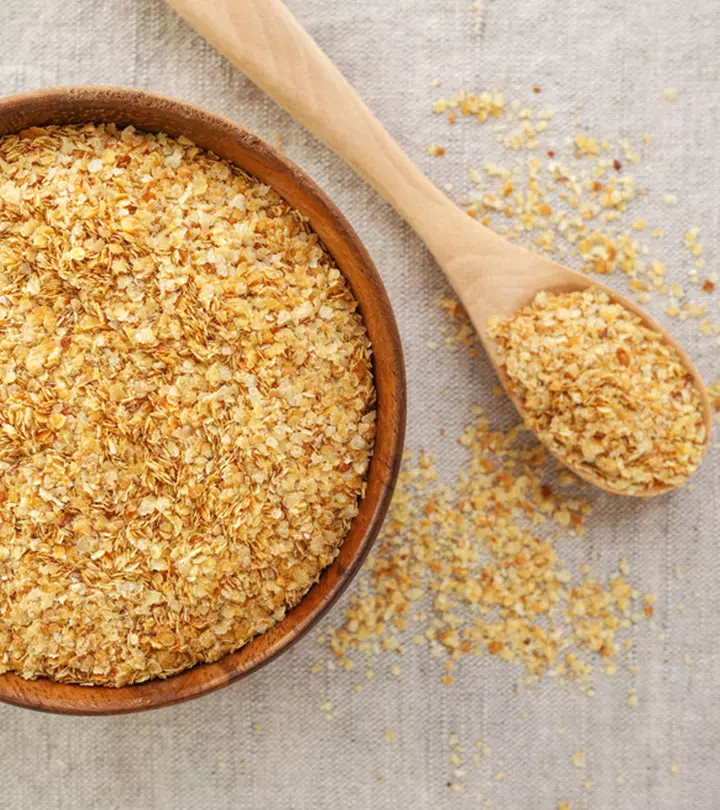



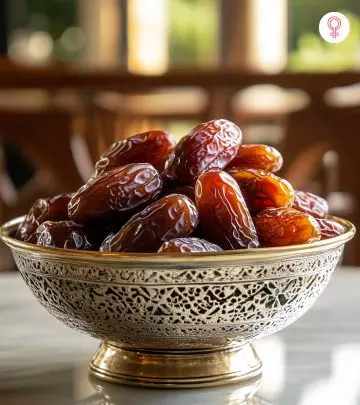

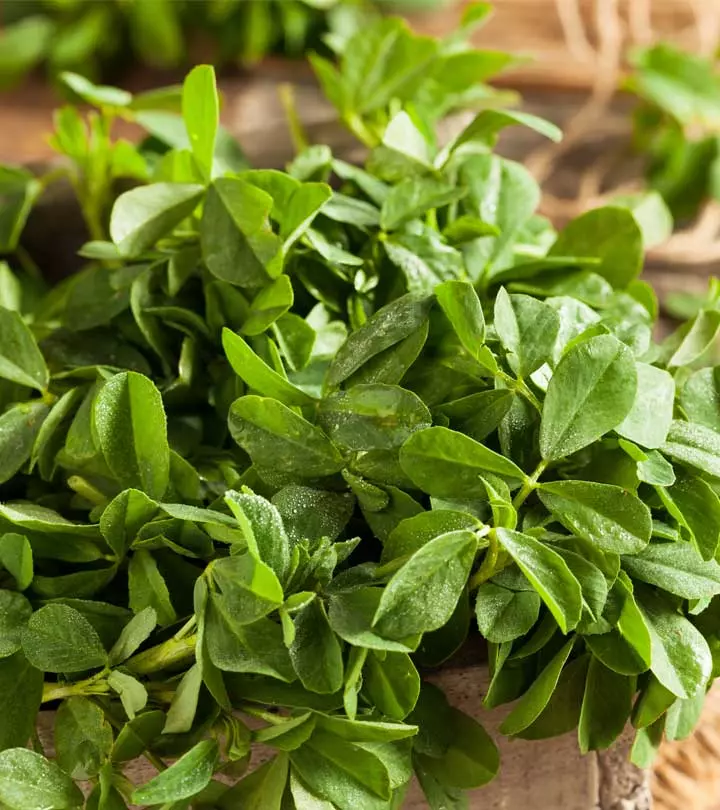
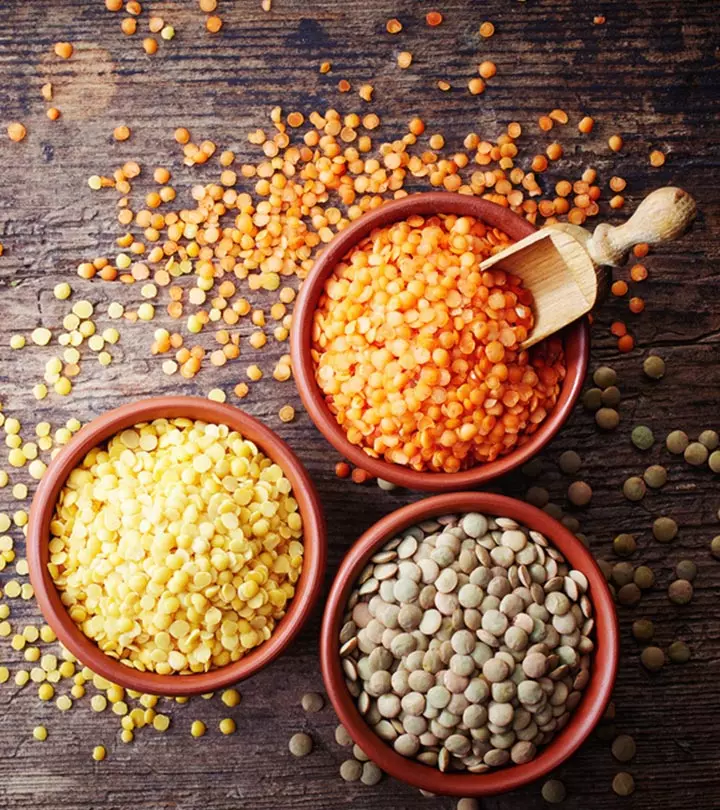
Community Experiences
Join the conversation and become a part of our empowering community! Share your stories, experiences, and insights to connect with other beauty, lifestyle, and health enthusiasts.